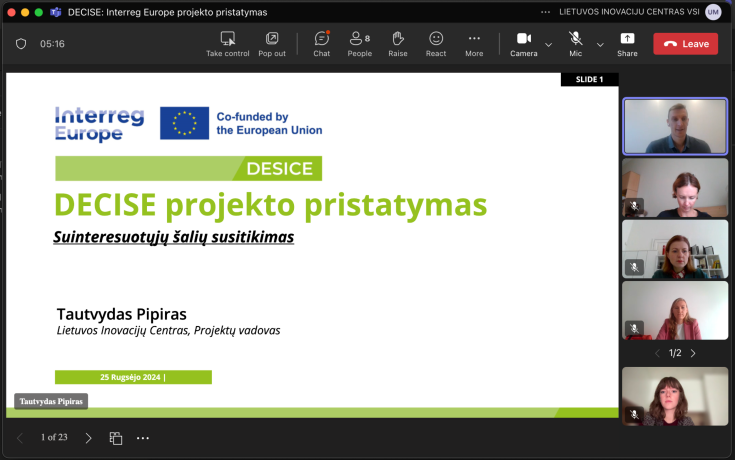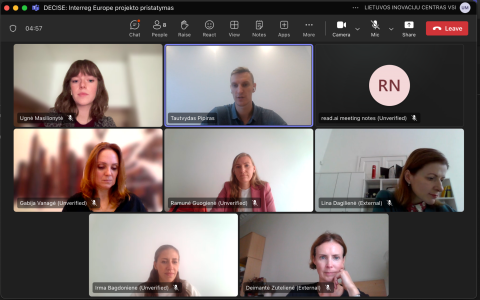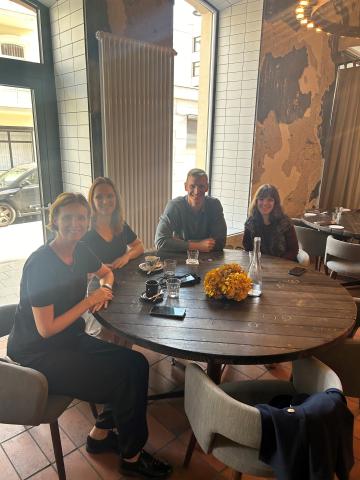1st Stakeholder meeting in Vilnius

The event brought together key stakeholders from several prominent institutions, including the project partner Lithuanian Innovation Centre and associated partner Lithuanian Council for Culture, as well as the Ministry of Culture of the Republic of Lithuania, Tech-Park Kaunas, and Kaunas University of Technology. The meeting focused on how the project could foster innovation, creativity, and collaboration within Lithuania, especially in alignment with broader European initiatives in the fields of culture and sustainability.

The meeting was opened by Tautvydas, who provided an overview of the main objectives of the project DECISE. As part of his presentation, Tautvydas showcased good practices from other partners of this initiative. He first introduced the D-Tool, drawing comparisons to a similar initiative, CD-Tool, implemented by one of the stakeholders - a representative from the Kaunas University of Technology. The key challenge faced by CD-Tool was resistance to digitization from designers, who preferred in-person collaboration through physical labs. However, Tautvydas stressed that despite these challenges, digital collaboration tools and creative labs remain highly relevant, particularly with the right mentoring and support frameworks.
Further enriching the discussion, Tautvydas introduced another good practice: the Creativity Platform. He emphasized the importance of integrating such practices into the project DECISE framework to inspire and engage diverse stakeholders in fostering innovation.
Representatives from Kaunas Tech-Park also shared an example from their initiatives, which resonated with the project’s values. They discussed a family-oriented workshop that involved building robots from old objects, encouraging participants to share creative experiences within their families. This activity is part of the Circular Spaces project, which embodies the principles of creativity, sustainability, and collaboration that align closely with the objectives of DECISE.

The stakeholders showed great enthusiasm for exploring how the DECISE project could effectively connect culture, design, and technology in Lithuania. They recognized that leveraging these insights could significantly enhance innovation and foster community engagement, all while aligning with the project's goals of strengthening product design capabilities and promoting circular economy principles.
